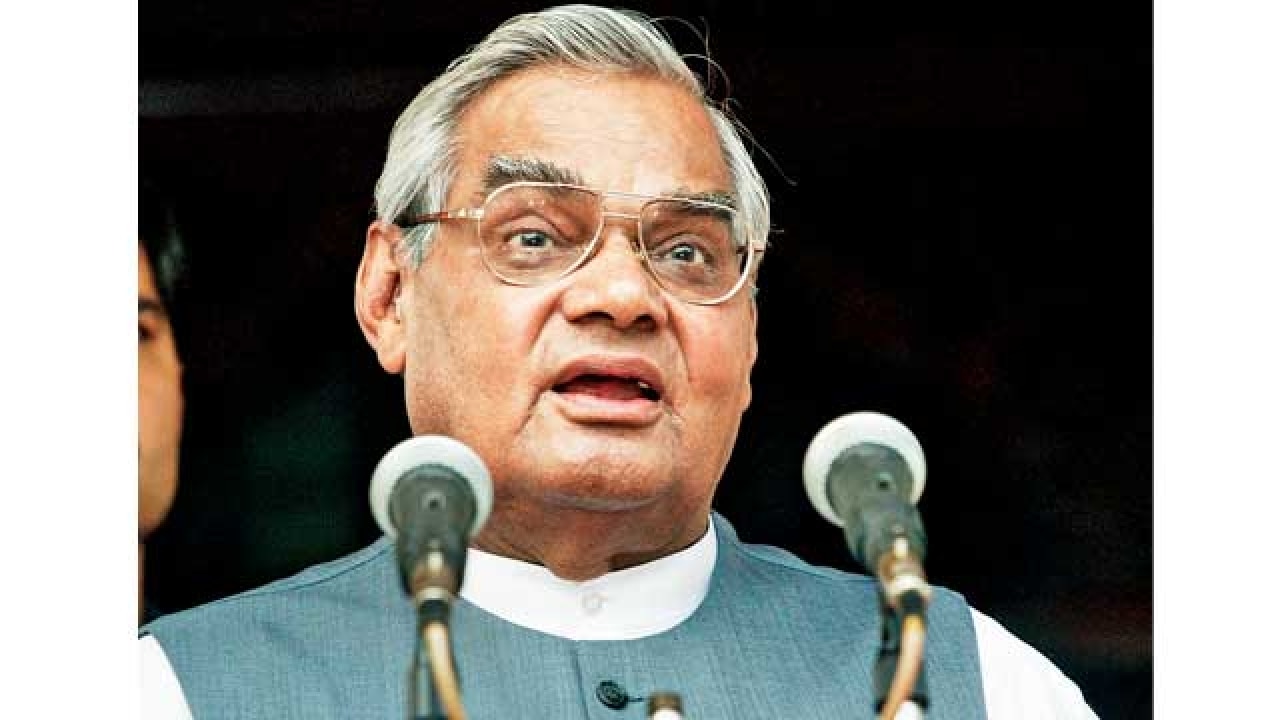
It’s open season for Indian political biographers; a growing reading and book-buying public is hungry to know more about their leaders. Especially after the ambit of the latter has extended beyond one family and its cronies, there are opportunities galore to produce a range of narratives, from brisk if forgettable tomes cashing in on the charisma of those currently in power to serious histories of contemporary India’s political class.
Ullekh NP’s recently released bio, The Untold Vajpayee: Politician and Paradox, on one of India’s most well-regarded and loved Prime Ministers, Atal Bihari Vajpayee, is neither a shallow quickie nor a deeply considered exposition. Ullekh, a well-known journalist, spent years researching his subject, but was frustrated with his lack of access to crucial material, including the official papers of the principal actors, not to mention letters, journals, and other such private documents. This is not surprising because no political party, the BJP and the RSS included, has built a systematic archive on its leaders.
More crucially, this is not an authorised biography. Vajpayee gave Ullekh neither permission to write this book nor access to himself and his life. Ullekh, thus, soldiered on without the cooperation of his protagonist. Besides, not just Vajpayee, many in his circle preferred to keep crucial facts, circumstances, and experiences under wraps. Vajpayee’s closest ally, LK Advani, told Ullekh that he had nothing to add to what he had already written in his own autobiography, My Country, My Life.
The result is that those who did speak to Ullekh, whether openly such as Balraj Madhok, or privately such as Ram Bahadur Rai, turn out more often than not to have been either Vajpayee’s rivals or critics. One cannot, therefore, help feeling that Ullekh could not do full justice to his subject. Vajpayee emerges as a somewhat calculating, even crafty politician, instead of the noble and inspiring statesman that we knew and admired. His stature and achievements end up being diminished.
Classical Western models of biography include Plutarch’s secular but stirring lives and hagiographies of Christian saints down the ages. In modern times, Carlyle, following on both, wished the common populace to be inspired and elevated by the great. After Freud, however, digging out the dirt became the norm rather than the exception; it was the hidden, secret inner life that gave the real hint to personality, not the external details. Closer home, Indian biographers have had to contend with two outstanding specimens of twentieth-century life-writing, Mahatma Gandhi’s The Story of My Experiments with Truth and Jawaharlal Nehru’s An Autobiography.
Ullekh’s biography, however, falls between two stools. It offers neither the story of Vajpayee’s inner life, nor a radically illuminating account of his times. True, there are some juicy titbits, including an alleged coup planned by Advani, not to mention Modi outmanoeuvring Vajpayee after the Gujarat riots to save his Chief Ministership. But these backstories were already known in the gossipy corridors of Delhi. Likewise, an over-reliance on secondary sources makes Ullekh’s bio somewhat of a rehash. A politician who is also a poet might have given his biographer some clues to his inner life in his verse. But Ullekh fails to contend with, let alone analyse, Vajpayee’s poetic output. The speeches do come in for sporadic attention, but we have to be content with what we already know: Vajpayee was a powerful, witty, and engaging orator.
Vajpayee’s persistence, tact, and self-confidence are also not sufficiently highlighted. Here is one political figure who, though always in the public eye, rarely uttered one rash or reckless sentence, something he might have to retract or regret later. In this respect, he was superior even to Nehru, his professed idol, who was prone to occasional emotional outbursts. After taking political sanyas, Vajpayee maintained both his silence and his dignity, never returning to the rough and tumble of Indian politics. Ullekh fails to highlight such exemplary facets of Vajpayee’s public persona.
Ullekh does bring out how Vajpayee built working relationships with all members of the political spectrum, including Indira Gandhi, though the former jailed him during the Emergency. Similarly, he never attacked Rajiv Gandhi, Sonia Gandhi, or any other member of the family. Ullekh also rightly describes Vajpayee as a Nehruvian liberal, more in the Congress, than the RSS/Jan Sanghi mode. Remaining urbane, even epicurean all his life, Vajpayee was never disposed to extreme or fanatical postures. Yet, Ullekh is quick to insinuate that Vajpayee abetted the Nellie massacre in Assam by his anti-immigrant speech.
Vajpayee’s greatest achievements — not just Pokhran or Kargil — but the dignified artistry with which he masterminded the NDA coalition are not given sufficient attention or importance in the book. On the one hand, Vajpayee alone could maintain cordial relations, even alliances, with all three of India’s most formidable regional leaders, including the teen (difficult) deviyan — Behenji, Didi, and Amma. Both Pokhran and Kargil, on the other hand, required steely determination, not diplomacy, which Vajpayee also showed in great measure.
To be fair, Ullekh seldom tries to prejudice the reader against Vajpayee or indulge in cheap and motivated political diatribe. For the most part, he keeps to the middle path, thus not swerving from the biographer’s dharma of neutrality. Yet, one cannot help noticing the underlying condescension and Left-Liberal deprecation of the RSS, Jan Sangh, or BJP. All told, Ullekh’s effort must be recognised as a well-intentioned attempt rather than a hugely successful accomplishment. If the rumour that an authorised biography of Vajpayee by none other than a cabinet minister in the present government is in the offing, then we may yet hope for a fuller, if not more fulsome, account of the Vajpayee years.
The author is poet and professor at JNU, Delhi.